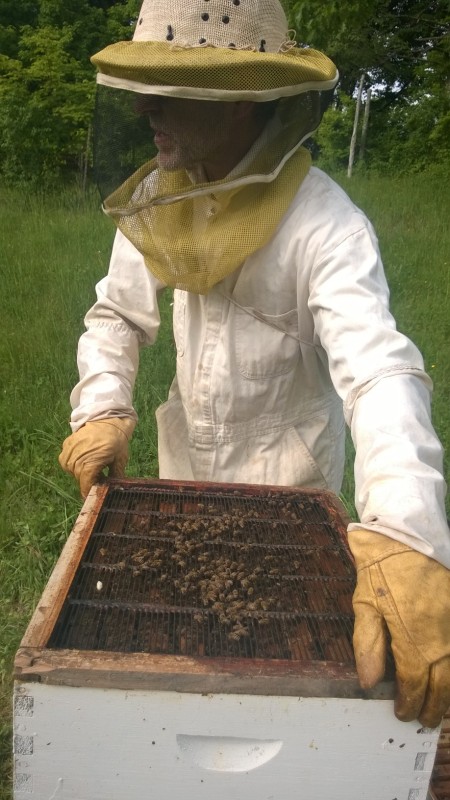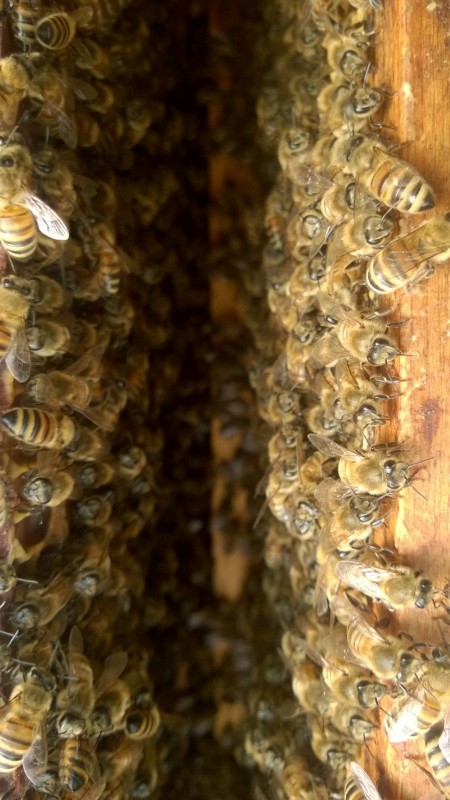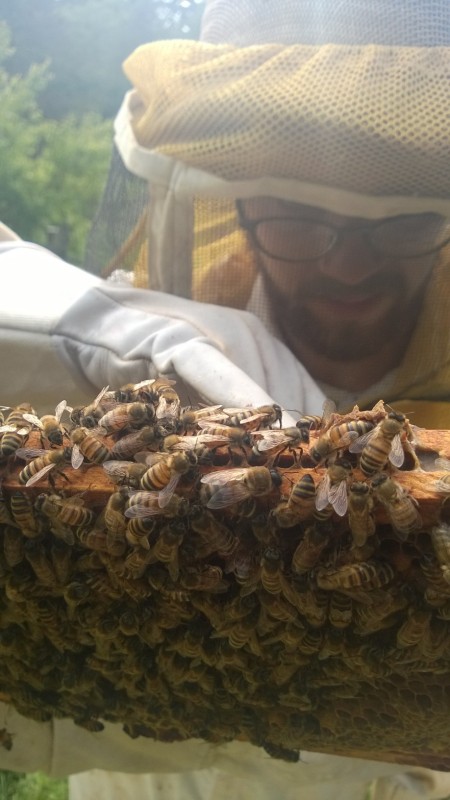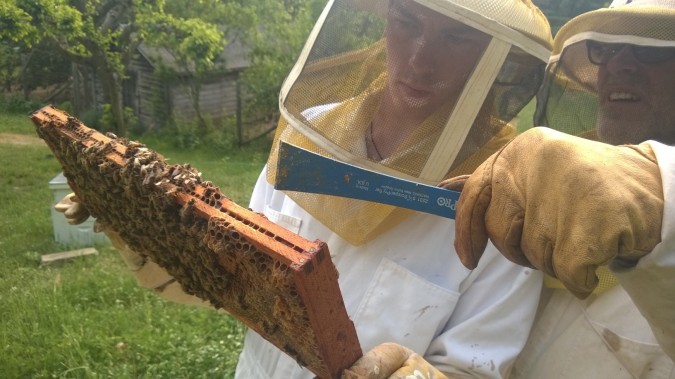Honey Flow! Check your hives!
The season is here: after the April-May rains (that we didn’t much get). Dandelions fade. Billions of flowers explode on nectar bearing ‘honey trees’. The major spring flow hits.
Honey bees are crucial pollinators for our food. Over 90% of food crops are pollinated by honey bees. The industrial, chemical, unnatural management of bees is an epic fail with massive catastrophic consequences—just like industrial, petroleum intensive, mono-cropping vegetable production, or confined-animal-feeding-operation-feed-lot beef, pork, chicken and fish. Raising food in a manner that is wholly contrary to anything nature has designed ultimately yields disastrous results. Our response, yours and Moon In The Pond’s, is to get busy! Bees are an integral part of our diverse eco-agro-system. We keep bees. And we teach and promote beekeeping.


What most people know is that a colony of bees is ruled by a single queen bee. Did you know all the workers are sterile females? Males are called drones with only one purpose that we know—one drone gets to mate with the queen. The queen bee is monarch in charge of a veritable city of worker bees: nurses, housekeepers, external repairworkers, comb makers, guards, field workers, queen attendants, etc. And she continues to produce more at times laying 1,500—3,000 eggs per day! If a hive gets too crowded with new bees and stored honey, the colony will divide and a portion of the bees will leave to establish a separate new colony. This mass exodus of bees is called a swarm. They fly through the air like a cartoon comet. If you see a soccer ball of bees in tree—call a beekeeper! Swarms can be captured by a knowledgeable beekeeper to populate a new hive in the bee yard.

Here at MITP we educate our apprentices and interns about honey bees and organic crop management. They learn how to tend the hives and extract honey. We’ve established a new local facebook page to educate the larger community and network our beekeeping neighbors: “Beekeepers of the Southern Berkshires.”
To continue our educational pursuit we need your help. Please make a tax deductible donation through PayPal, now! Join our beekeeping and educational efforts. Like queen bees we need to populate our healthy hives!! Become a ‘beekeeper’ with us–support our fundraiser to educate new farmers!

